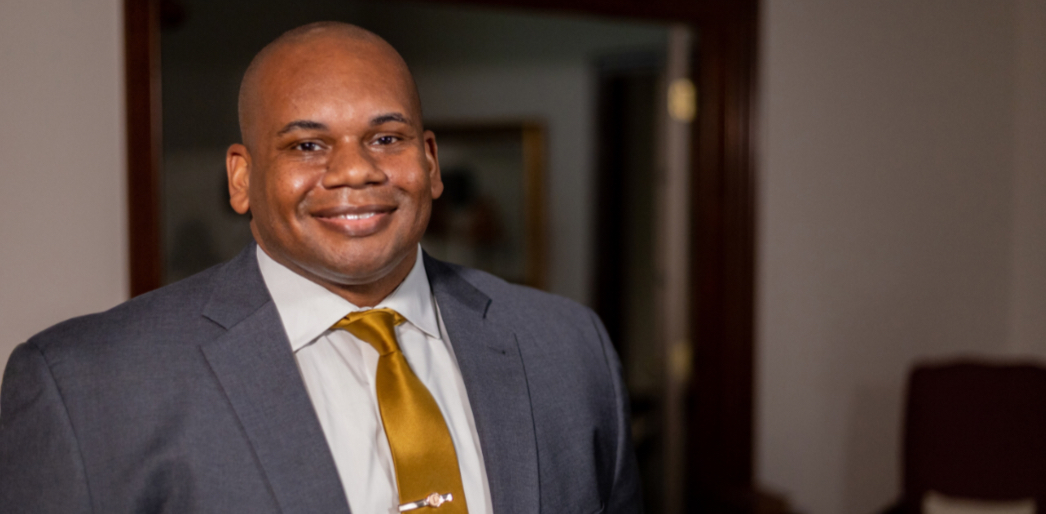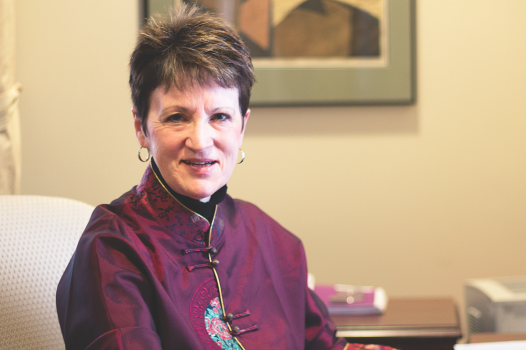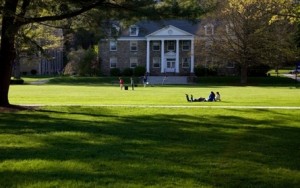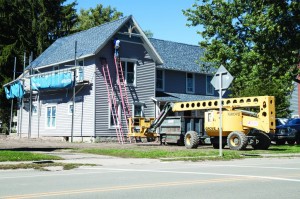On Wednesday, April 28, Dr. Wayne D. Lewis Jr. was announced as the 6th president of Houghton College. Following President Shirley Mullen’s announcement on October 20th of her resignation after 15 years in the position, the school has spent over half a year eagerly waiting to find out who would be the next individual to take up the role of school president.
So who is Dr. Lewis? Hailing from New Orleans, Lewis graduated from Loyola University with a bachelor’s degree in Criminal Justice. However, his formation as a leader began even before college. In his first message to the student body, during Wednesday’s chapel, Dr. Lewis cited his time as a high school drum major as a key influence on him, saying this was his “most formative leadership experience, even at this point in my life… there’s nothing I believe that prepared me more.” Going on to receive a master’s degree in Urban Studies from the University of Akron in Ohio, Lewis then received a PhD in Educational Research and Policy Analysis from North Carolina State University, with a minor in Public Administration.
Dr. Lewis is certainly no stranger to the field of education, and though his experience in this area includes time dedicated to higher education, it is by no means limited to it. “I selected education as a career a long time ago now,” he said an introductory video released on the Houghton College YouTube channel, “because of my deep love for students… I knew that I wanted to spend the rest of my life and my career working to create opportunities for students.” This started, says Dr. Lewis, with his time working in K-12 education in Louisiana and North Carolina public schools, particularly focusing on special education.
After Dr. Lewis finished his doctorate, he served at the University of Kentucky as a professor of Educational Leadership. He then moved on to serve in a public office, as the Executive Director of Education Policy and later the Commissioner of Education for the Commonwealth of Kentucky. Before coming to Houghton, Dr Lewis’ most recent position was at Belmont University, as the inaugural Dean of the School of Education. Furthermore, he has authored one book, “The Politics of Parent Choice in Public Education: The Choice Movement in North Carolina and the United States,” and has published numerous other pieces on topics in education, included in both edited volumes and peer-reviewed journals. Dr. Lewis’ positions and writing outline the figure of an individual who is dedicated to improving education for all in practical ways, both through what he says and what he does.
In the introductory video, Dr. Lewis also emphasized the necessity of Christian liberal arts institutions in our current time and climate. “I have no doubt God uses places like Houghton College,” he says, “to prepare leaders for today and tomorrow, to deal with some of the most difficult, the most intractable problems our world has ever seen… to have a small role in what God is doing here at Houghton, is more than I could ever imagine.” ★




